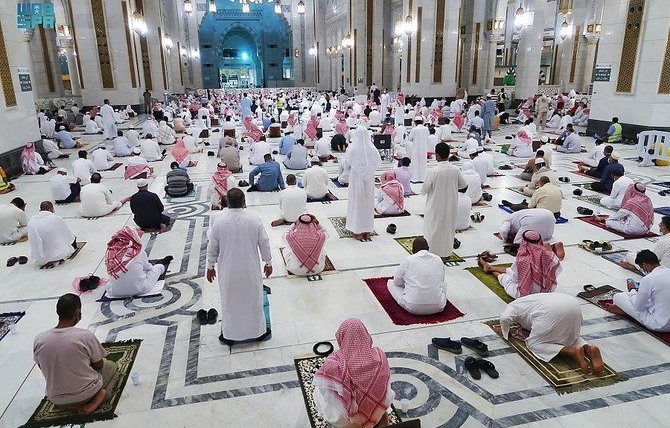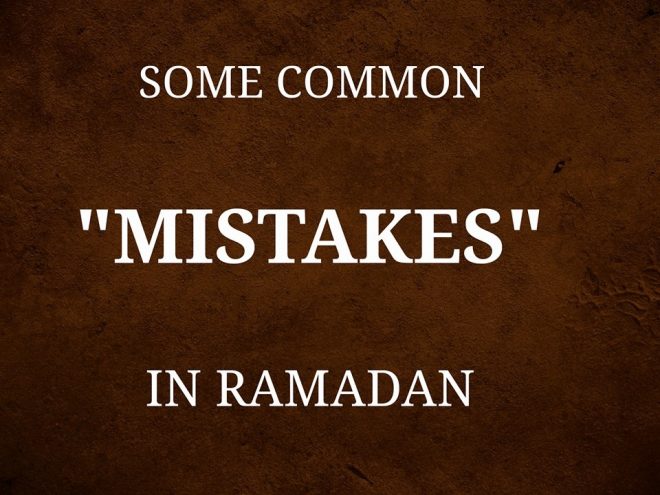Ramadan is a month of spiritual reflection, fasting, and devotion for Muslims around the world. It is a time for self-improvement, increased worship, and good deeds. However, many people make mistakes during this holy month, which can negatively impact their spiritual journey. In this article, we will discuss 20 common mistakes that people make during Ramadan and how to avoid them.
1. Not Fasting Properly
One of the most important aspects of Ramadan is fasting. However, many people make the mistake of not fasting properly. This includes breaking the fast with inappropriate food, drinking water before the designated time, or not fasting at all. It is important to remember that fasting during Ramadan is not just about abstaining from food and drink, but also about controlling your thoughts, words, and actions.
2. Skipping Tarawih Prayers

Tarawih prayers are performed after Isha prayers during Ramadan. They are optional but highly recommended for Muslims. However, many people make the mistake of skipping these prayers, either due to fatigue from fasting or simply because they are not a priority. It is important to remember that Tarawih prayers are an opportunity for increased worship during Ramadan and can bring great blessings.
3. Neglecting Quranic Recitation
Ramadan is a time for increased Quranic recitation. However, many people neglect this opportunity and do not make an effort to recite the Quran regularly during the month. Neglecting Quranic recitation can result in missing out on the many benefits and blessings of the Quran, including increased knowledge and spiritual growth.
4. Breaking the Fast with Unhealthy Foods

Breaking the fast with unhealthy foods is a common mistake made by many people during Ramadan. Foods high in sugar and fats should be avoided, as they can cause a quick spike in energy followed by a rapid drop. Instead, it is recommended to break the fast with dates and water, and then follow with a balanced meal that includes whole grains, fruits, and vegetables.
5. Overindulging During Iftar
Iftar, the meal to break the fast, is an important part of Ramadan. However, many people make the mistake of overindulging during this meal, which can lead to physical discomfort and negative health effects. It is important to eat slowly, in moderation, and choose nutrient-dense foods to avoid overeating and its associated health problems.
6. Not Staying Hydrated
Fasting during Ramadan can lead to dehydration, especially in hot weather. Many people make the mistake of not staying hydrated, which can lead to physical and mental exhaustion. It is important to drink plenty of water, especially during non-fasting hours, to avoid dehydration and its associated health problems.
7. Neglecting Family and Work Responsibilities
Ramadan is a time for increased devotion and worship, but it is not an excuse to neglect family and work responsibilities. Many people make the mistake of prioritizing their spiritual pursuits over their obligations, which can lead to conflict and stress. It is important to strike a balance between worship and responsibilities, to ensure a harmonious Ramadan.
8. Losing Temper Easily

Fasting can be challenging, and it is not uncommon for people to lose their temper easily during Ramadan. This is a common mistake that can lead to conflict and damage relationships. It is important to maintain self-control, even when fasting, and to avoid reacting impulsively.
Recommended reading: The Importance of Patience in the Quran and Hadith
9. Skipping Suhur
Suhur, the meal before the start of the fast, is an important part of Ramadan. However, many people make the mistake of skipping Suhur, either due to oversleeping or simply forgetting. Skipping Suhur can result in physical weakness and fatigue during the fast, and can make it more difficult to endure the fast throughout the day. It is important to make an effort to have a balanced Suhur meal, to provide the necessary energy and nutrients for a successful fast.
10. Not Being Considerate of Non-Fasters
Ramadan is a special time for Muslims, but it is important to be considerate of those who are not fasting. Many people make the mistake of disregarding the feelings of others, by eating or drinking in front of non-fasters, or speaking insensitively about their fasting. It is important to be respectful and understanding of those who are not fasting and to avoid actions that may cause offense.
11. Focusing Only on Physical Aspects of Ramadan
Ramadan is not just about abstaining from food and drink, but also about spiritual reflection and growth. Many people make the mistake of focusing only on the physical aspects of Ramadan, and neglecting the spiritual aspect. It is important to focus on inner self-improvement, by engaging in acts of worship, charitable giving, and self-reflection.
12. Neglecting Good Deeds
Ramadan is a time for increased good deeds and charitable giving. However, many people make the mistake of neglecting these important aspects of Ramadan. Neglecting good deeds and charitable giving can result in missing out on the many blessings and rewards of Ramadan. It is important to make an effort to perform good deeds, such as volunteering, helping others, and giving to those in need.
13. Being Lazy

Ramadan is a time for increased worship and devotion, but it is not an excuse for laziness. Many people make the mistake of being lazy during Ramadan, and neglecting their responsibilities. Being lazy can result in missed opportunities for spiritual growth, and can negatively impact personal and professional life. It is important to maintain a healthy work-life balance, even during Ramadan.
14. Being Overly Strict
Ramadan is a time for self-discipline and devotion, but it is not necessary to be overly strict. Many people make the mistake of being too strict with themselves, and engaging in extreme fasting or worship practices. Being overly strict can lead to physical and mental exhaustion, and can make it more difficult to enjoy the blessings of Ramadan. It is important to find a balance and to avoid excessive strictness.
15. Neglecting Sleep
Ramadan is a time for increased worship and devotion, but it is important to prioritize sleep as well. Many people make the mistake of neglecting sleep during Ramadan, due to late-night prayers or other activities. Neglecting sleep can result in physical and mental exhaustion, and can make it more difficult to endure the fast and engage in worship. It is important to prioritize sleep and maintain a healthy sleep schedule during Ramadan.
16. Not Practicing Self-Control
Ramadan is a time for self-control and discipline. However, many people make the mistake of not practicing self-control, by engaging in negative behaviors such as anger, gossip, or lust. It is important to maintain self-control and avoid negative behaviors that can negatively impact the Ramadan experience.
17. Not Forgiving Others
Ramadan is a time for forgiveness and compassion. However, many people make the mistake of not forgiving others and holding onto grudges or resentment. Holding onto negative emotions can prevent the full spiritual experience of Ramadan, and can hinder personal growth and development. It is important to practice forgiveness and to let go of grudges and resentment towards others.
18. Wasting Time Watching TV
During Ramadan, an abundance of new series are released, making it alluring to spend the entire day binge-watching TV. Unfortunately, this leads to the day slipping away while being sedentary on the couch. To avoid this, it is recommended to limit TV watching to two or three series max, even though it may be tempting to watch everything. By doing so, more time will be freed up for other activities.
19. Neglecting Exercise

Ramadan is a time for spiritual reflection, but it is also important to maintain physical health. Many people make the mistake of neglecting exercise during Ramadan, due to fatigue or lack of energy. Neglecting exercise can result in decreased physical fitness and can make it more difficult to endure the fast. It is important to engage in regular physical activity, such as light exercise or yoga, to maintain physical health during Ramadan.
20. Comparing Ramadan to Others
Ramadan is a personal experience, and it is important to avoid comparing oneself to others. Many people make the mistake of comparing their Ramadan experience to others, either by focusing on the amount of worship or good deeds performed or by comparing their level of devotion. Comparing oneself to others can lead to feelings of inadequacy, and can prevent the full spiritual experience of Ramadan. It is important to focus on personal growth and development and to avoid comparing oneself to others.
In conclusion
Ramadan is a time for spiritual growth and reflection, but many people make common mistakes that can hinder the full experience. By avoiding these mistakes, and focusing on self-improvement, it is possible to make the most of Ramadan and to reap its many blessings and rewards.

